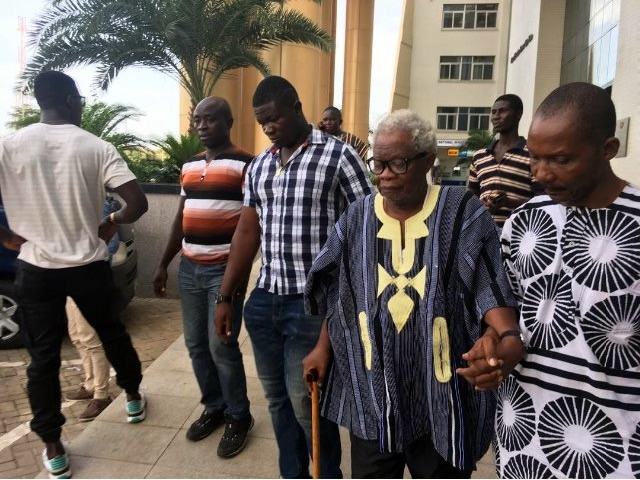The leader of the Volta separatist group, Homeland Study Group Foundation (HSGF), Charles Komi Kudzodzi, popularly known as Papavi Hogbedetor, has passed on.
Born on April 7, 1934, the 87-year old died at the St. Paul’s Hospital in the Akatsi South Municipality after a brief illness, multiple media sources report.
Until his death, Papavi Hogbedetor was seeking to have the Volta region and some other parts of the country -Western Togoland declared independent from Ghana.
He was on several occasions arrested and stood trial, having been charged with treason for his acts.
In November 2019 Papavi Hogbedetor infamously declared the Volta region as an independent Western Togoland state at a public held in Ho.
Kudzordzi, a retired teacher who walks with the aid of a stick, has been the leader of the separatist group in the Volta Region. His supporters fondly called him “Papavi”, or grandfather.
Why the push for a new country?
Separatists say the Volta area has a unique history and culture and warrants being its own country, but reject accusations of planning violence to achieve their goal.
“Our activities have always been in the open,” the fugitive secretary of HSGF, George Nyakpo, told AFP back in 2019.
The role of the colonisers
The region’s problems are deeply rooted in divisions created by its colonial past.
During the so-called “Scramble for Africa”, Britain seized much of what is today Ghana, while Germany grabbed areas to the east, then Togoland.
After Germany’s defeat in World War One, Togoland was split west-east between Britain and France.
When Britain abandoned its empire in 1956, Ghana was among the first African colonies to gain freedom. The people of British Togoland were given a choice between Ghana and Togo, and Britain said nearly two-thirds opted to incorporate their area into Ghana.
If Western Togoland existed
If Western Togoland were a country, it would be home to millions of people and possibly rich in oil and gold reserves.
Multiple ethnic groups live in the area; Christians, Muslims, and followers of voodoo.
Separatists say the territory is a strip 550 kilometres (340 miles) long and 60 kilometres wide, stretching from the border with Burkina Faso in the north to the Gulf of Guinea, sandwiched between Ghana and Togo.
UN documents from 1955 estimate then-British Togoland at 33,776 square kilometres (13,041 square miles), slightly bigger than Belgium.
But while the colonial-era area was landlocked, separatists today claim access to the sea.
Widespread support?
Historians reject a claim by separatists that in 1956 the people of Togoland were promised another referendum after 50 years.
“It is not true,” said Professor Wilson Yayoh, from Ghana’s University of Cape Coast.
Backers of Western Togoland claim widespread support, but many in Volta seem suspicious.
“Their mission is impossible,” said trader Doris Mawusi. “Ghana is our homeland and we are here to stay.”
“We don’t trust these HSGF people,” said Joseph Doe, a 57-year-old fisherman. “They are pursuing their parochial interests. What track record do they have to rule over us?”
The separatists began campaigning in 1972 as the “National Liberation Movement of Togoland”, dominated by the Ewe tribal group.
Their calls to renegotiate borders sparked tensions between Ghana and Togo, and in 1976, Accra banned the group.
Back then, US diplomatic cables said the government was “unusually sensitive to Ewe separatist challenges, which may be real or imaginary”.
Today, the issue seems to cause no less twitchiness in the Ghanaian capital.
Source: Daily Mail GH





